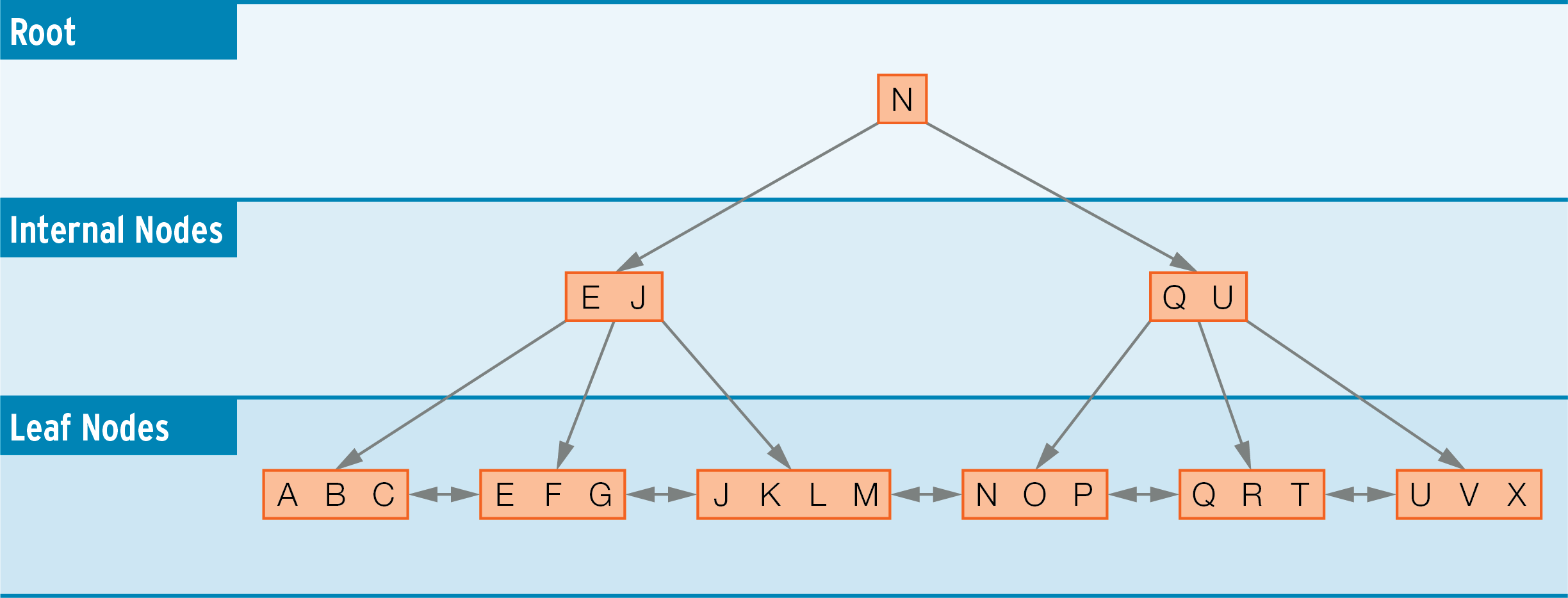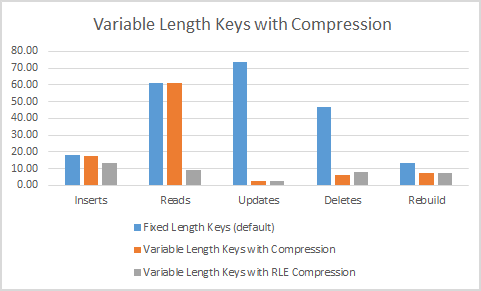FairCom DB indexing has always been optimized for the fastest possible data access. Indexes are composed of keys. However, not all keys are composed the same. For example, consider indexing based on file paths. Path strings are highly variable in length. Indexing data based on this type of key definition requires defining a key length of the absolute possible maximum while most keys are substantially less. This introduces much wasted space into an index structure as b-tree indexes are constructed of fixed-sized nodes for efficiency of reading and writing. Each node read or write is generally performed as a single I/O operation, thus the more keys per node, the better the I/O throughput of reading keys in an index. Further, large variably sized keys force a large index node size to enforce a three key per node minimum. FairCom has addressed this wasted space challenge for greatly reduced index sizes, leading to less I/O and ultimately, increased performance.
In FairCom DB, we obtained considerable index performance for large key lengths. A new Variable-Length Key Compression ("Vlen Keys") demonstrated up to 6x reduction in storage space and up to 28x faster performance in testing with the FairCom DB Server. The ideal scenario for this level of performance gain involves a reasonable length field (perhaps 32 bytes or larger) that will be roughly ½ of the maximum field length or less for most records.
By default, FairCom DB indexes store keys as fixed-length values. This requires few CPU cycles however, increases storage space and resulting I/O. Taking advantage of the fact CPU processing is orders of magnitude faster than I/O, we created a new compressed, variable-length index structure significantly reducing storage space along with a concomitant reduction of I/O when reading and updating index data.
This effort required advanced optimizations to our Index Node/Page handling. Now we have the ability to store more index entries per Node/Page, resulting in more "bang for the buck" on each disk I/O. These internal improvements do not affect your existing application code. To take advantage of this new advanced index compression, simply rebuild indexes with the new settings detailed in the sections that follow.

Variable-Length Key Performance Results
Substantial improvements in performance were seen when using key compression. The following tests were conducted using the FairCom DB Server on a table with 1 million records and a single index over a 1,000-character field that contained a file name with long paths.
